By:
- Amanda Rubalcava
Published Date
By:
- Amanda Rubalcava
Share This:
Reflection and Recognition: Asian and Pacific Islander American Heritage Month
Students faculty and staff reflect on their heritage and share ways to support the community
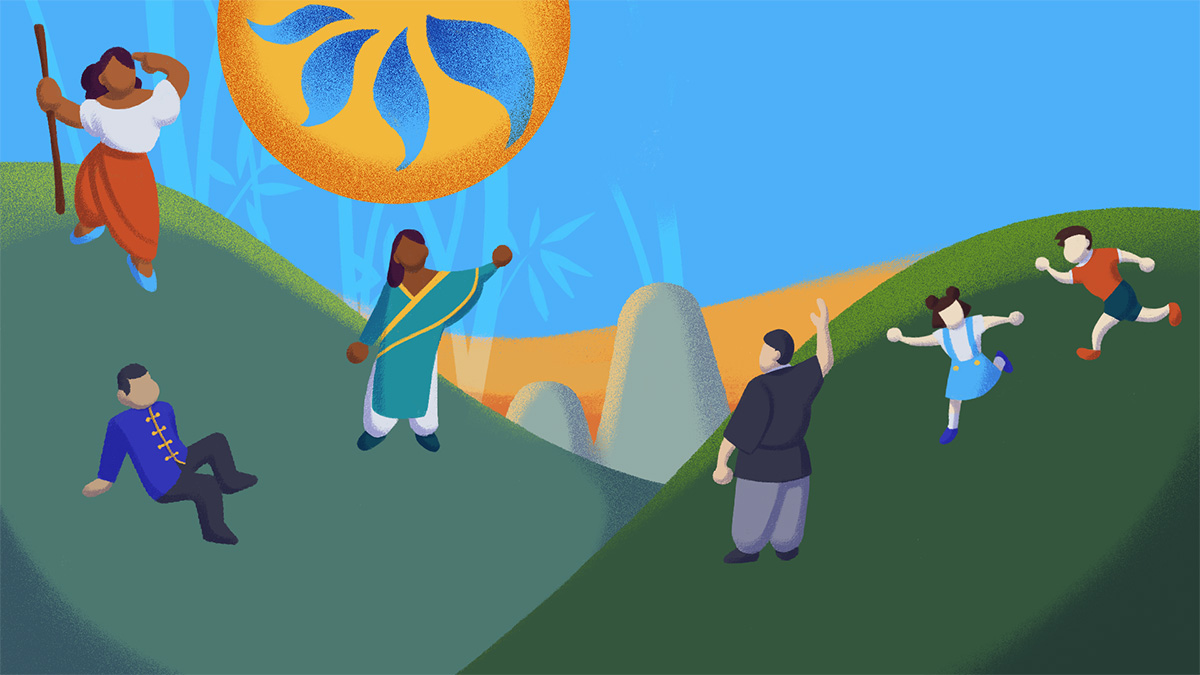
This May, the University of California San Diego honors the 15th anniversary of its Asian and Pacific Islander American Heritage Celebration. The theme for 2021 will focus on “Empowering Community Through Reflection and Recognition”—a call for action that involves increasing awareness and visibility of the community while honoring the lived experiences, perseverance and joy of Asian and Pacific Islander Americans.
For UC San Diego, cultivating a campus community of care and belonging has long been a part of the institution’s commitment to inclusion. Always—but especially in the wake of rising anti-Asian racism and the recent increase of hate crimes against Asian Americans around the country—UC San Diego emphasizes the importance of celebrating, supporting and standing in solidarity alongside its Asian, Asian American and Pacific Islander American community members.
For the month of May, a variety of events and opportunities have been curated to help the campus both gain a stronger understanding as well as honor the culture, traditions and history of this community. On May 6, actor Taylor Takahashi will deliver the keynote address as part of the 15th Anniversary Asian and Pacific Islander American Heritage Celebration and Scholarship Awards. The virtual event will also feature a live DJ plus comedic stand-up talent from members of Crazy Woke Asians.
To kick off the heritage month, we invited students, faculty and staff to reflect on their personal stories of heritage, as well as to share ways to support the Asian American and Pacific Islander community.
What does showing up to support the Asian American and Pacific Islander community look like to you?
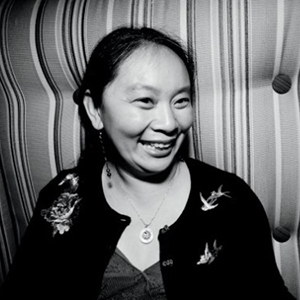
Photo credit: Bil Zilman.
“It is important to understand that ‘Asian American and Pacific Islander’ includes many different groups of people. The U.S. Census reports that people identify over 60 ethnic groups within this population. Understanding and learning about all of the parts of these populations is a place to start. When learning, it is important to learn more than the dance, food and language, but also the different histories and experiences of people. Listen to and promote people’s stories, use the knowledge you gain to educate others, and advocate for the stories still missing from the narratives. All marginalized groups need strong allies to be in coalition with them and to speak up in solidarity.”
—Windi Sasaki, Asian Pacific Islander Middle Eastern Desi American (APIMEDA) Program Manager
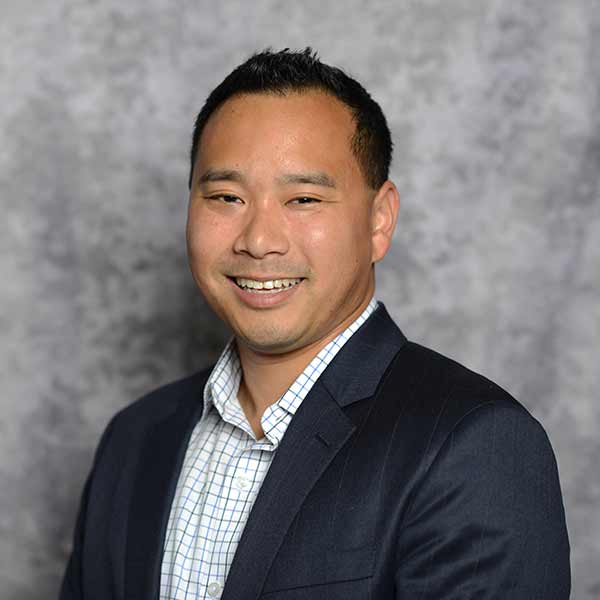
“To me, showing up for the Asian American and Pacific Islander community means being a consistent and reliable ally. Allyship starts with suspending judgment and listening to our experiences. While listening, it is important to reflect on how you are best positioned to advocate for our community, which looks different for every individual person. Lastly, I hope that our allies can elevate our voices whenever appropriate to promote racial justice within society for AAPI members.”
—Charles Lu, OASIS Director
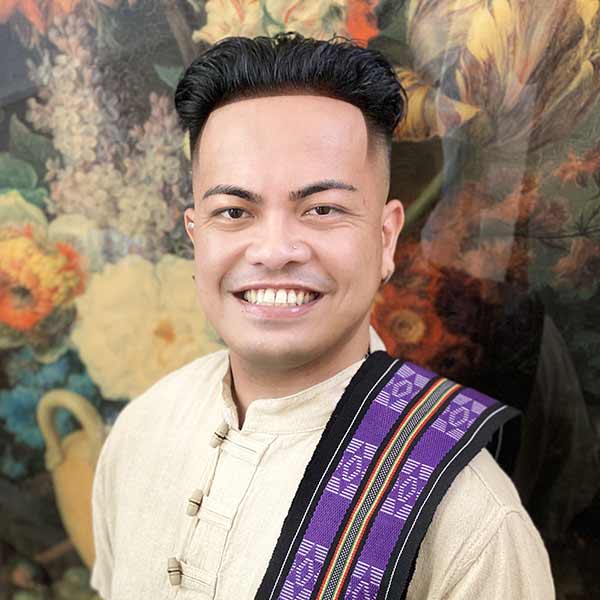
“‘Showing up’ does not ‘just’ mean physically being there or providing the programs that the community can attend. It is that, more than that, and beyond that. What does it mean to address the particular needs of each community, and how does the complexities of our diverse, intersectional identities need to be addressed? The intersections of race, ethnicity, nationality and culture gets complicated when we bring in gender, gender identity, sexuality, spirituality, class, ability, mixed-raceness and other identities. Are we showing up for all those in the community especially those who are in the periphery? When we want to bring those marginalized into the center, do we allow all to come to the center or do we only want those fit a particular identity or status to speak? Sometimes, ‘showing up’ means allowing to give up your ‘space’ to those who have not been in the center—or even ‘seen’ the center.”
—Joseph Allen Ruanto-Ramirez, Access Programs Advisor at UC San Diego Student Promoted Access Center for Education & Service (SPACES)
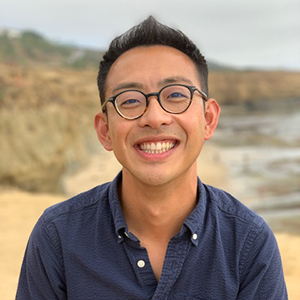
“To me, showing up means stepping back and allowing those who are most impacted to share their needs and their vision of how to meet them, and figuring out how I can plug in and be helpful. It is trusting that people know what’s best for them—that when students ask for things like an extended deadline or an excused absence, that what they’re asking for is likely the minimum of what they need, and that I abandon any pretense of upholding academic ‘standards’ or ‘integrity’ and other hierarchical ways of relating to them. Showing up also means recognizing the incredible labor AAPI students, faculty, staff and communities are called to do and making sure they’re compensated when asked to do things.”
—Simeon Man, Associate Professor of History; Director of Asian American and Pacific Islander Studies Program; Associate Director of Institute of Arts and Humanities
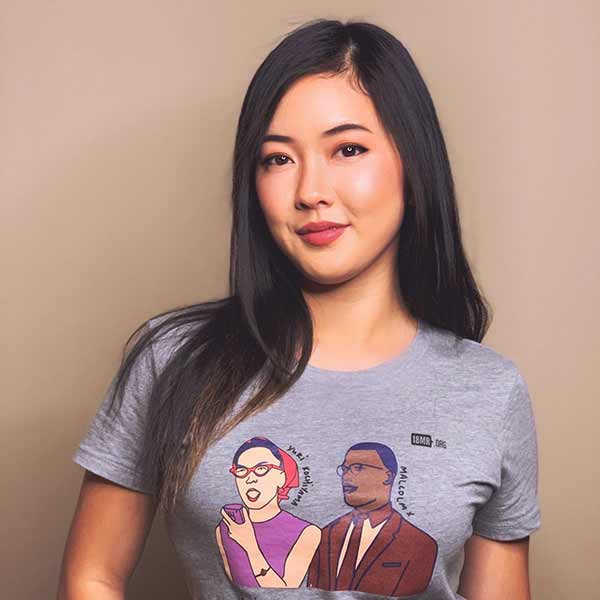
“Showing up to support the AAPI community looks like an ongoing and sustained commitment to ensuring that our communities are cared for before, beyond, and through times of crises. It means carrying our heartbreak collectively as we grieve the loss of Asian elders, Asian women, and Sikh community members and recognizing that anti-Asian violence is not new and that our communities have endured a multiplicity of histories that continue to shape our racialization as AAPIs. It also means nurturing our solidarities with other minoritized communities by honoring the labor of Black and Indigenous communities by understanding how anti-Blackness and Asian settler colonialism shape our experiences.”
—Vanessa S. Na, Ph.D. student, Education Studies
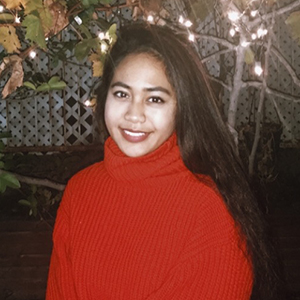
“Support looks like uplifting both Asian and Pacific Islander communities and recognizing the challenges/needs for both people. Encouraging solidarity for both groups without erasing the exclusive history that shape these communities.”
—Teuilatausala Moa, 3rd year undergraduate student, Anthropology Major
How has your heritage shaped the person you are today?

Photo credit: Bil Zilman.
“I identify as a fourth-generation Japanese American and a third-generation Chinese and Filipina American. Embedded in my families’ histories are several different and distinct stories of struggle and success. It was important to my parents that my siblings and I understood these struggles and the distinct ethnic cultures that we come from. We learned about history and culture and participated in each, understanding what communities the practice came from or who in our family was specifically affected by an event. I think this understanding of my families’ different histories and cultures shape the ways that I approach working with the highly diverse APIMEDA student populations at UC San Diego.”
—Windi Sasaki, Asian Pacific Islander Middle Eastern Desi American (APIMEDA) Program Manager

“I am the first person in my entire extended family to be born in the United States. My parents, who emigrated from Taiwan 40 years ago, spoke very limited English and I grew up speaking Mandarin at home and English at school. Because of the language barrier and other cultural differences, I was bullied in my early years in elementary and middle school like many other AAPI youth growing up in America. These experiences have taught me the importance of utilizing my privilege and my voice to speak out against injustices wherever I see them.”
—Charles Lu, OASIS Director

“As an Indigenous Person from the Philippines of Aeta, Igorot and Moro identity, and as a refugee, I bring these identities to all the spaces that enter. I work closely with those who identify as Asian American, Indigenous, and as a refugee in how I work with local high school students and community college students where many, like me, are first generation college students and came from a low-income family. My heritage allows me to bridge what it means to be Asian and in America—at times being seen as neither/or, a perpetual foreigner for both and in both—but those allow me to create my own space and make space for those who have to unshape, shape and reshape their identities in the processes of unlearning, learning and relearning.”
—Joseph Allen Ruanto-Ramirez, Access Programs Advisor at UC San Diego Student Promoted Access Center for Education & Service (SPACES)

“I am Chinese American, and I understand heritage as a set of relationships rather than a cultural essence or a trait passed down from one generation to the next. The relationships that shape me include my family, friends and community who teach me by example what it means to practice generosity and care with no expectations of reciprocity.”
—Simeon Man, Associate Professor of History; Director of Asian American and Pacific Islander Studies Program; Associate Director of Institute of Arts and Humanities

“As a daughter of Khmer refugees, my commitment to imagining better worlds is a manifestation of my community’s capacity to create everything from nothing. I have been a part of communities that taught me collective care and mutual accountability before I knew there were words for them. When I was younger, I would help my grandma make hundreds of freshly steamed baos to distribute around the neighborhood, with no expectation to return the favor. You are hungry and deserving of warm food, so eat and eat fully. These practices have led me to become involved in activism and mutual aid because refugee communities have always practiced collective care for one another and beyond each other.”
—Vanessa S. Na, Ph.D. student, Education Studies

“When someone identifies as Samoan, a huge sense of pride always comes with that. I never saw it any other way. I would say that my identity has given me a feeling of confidence that I never had naturally. Today, my Samoan identity gives me motivation to uplift my people, especially my Pasifika peers in the university setting. Pasifika is a term used to describe those with roots from the Pacific Islands.”
—Teuilatausala Moa, 3rd year undergraduate student, Anthropology Major
Alongside May’s heritage celebration events, a selection of resources are available on the Asian Pacific Islander Middle Eastern Desi American (APIMEDA) website to promote understanding and offer support to this community. To learn more about UC San Diego’s equity, diversity and inclusion efforts, please visit the Office for Equity, Diversity, and Inclusion website.
Share This:
You May Also Like
Engineers Take a Closer Look at How a Plant Virus Primes the Immune System to Fight Cancer
Technology & EngineeringStay in the Know
Keep up with all the latest from UC San Diego. Subscribe to the newsletter today.



